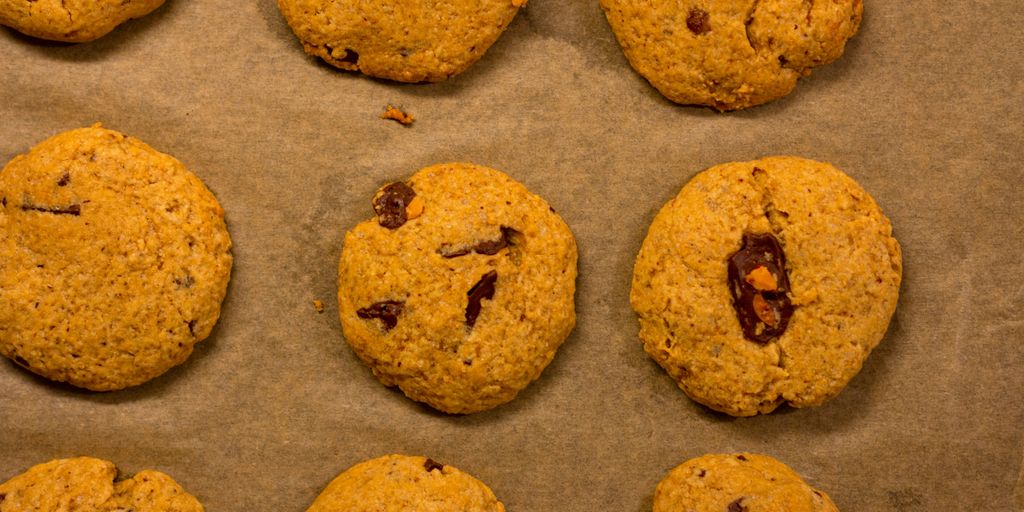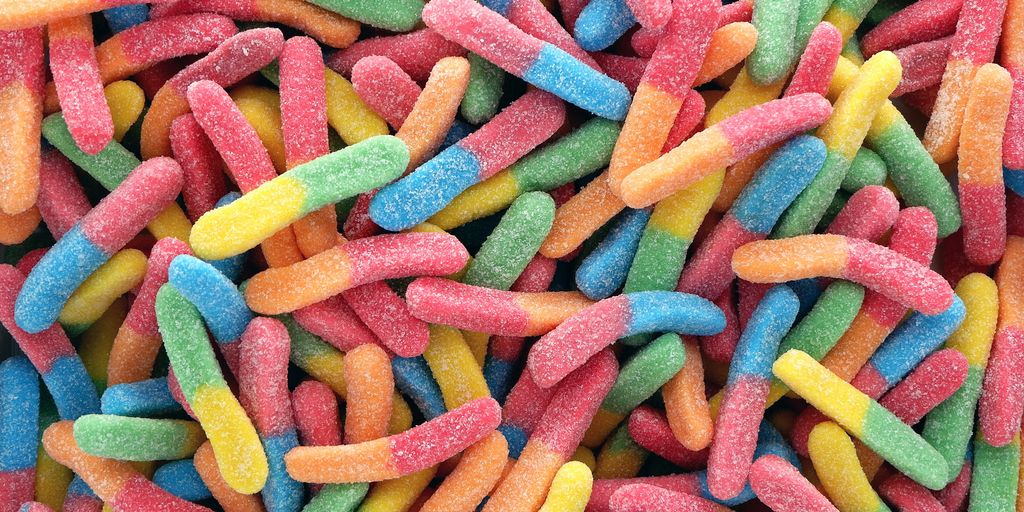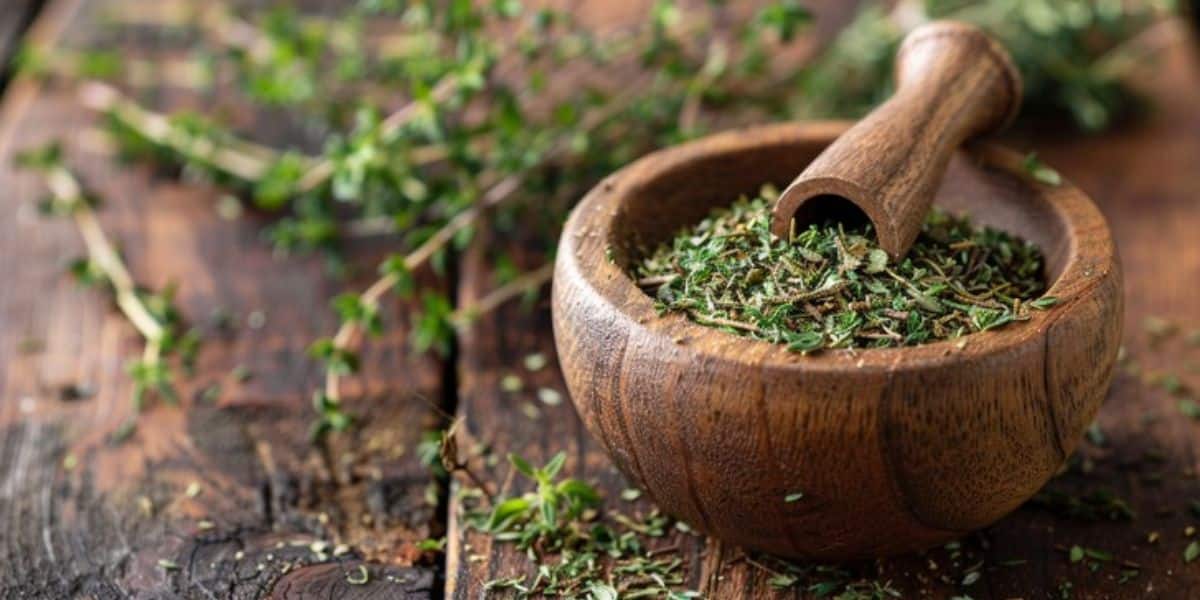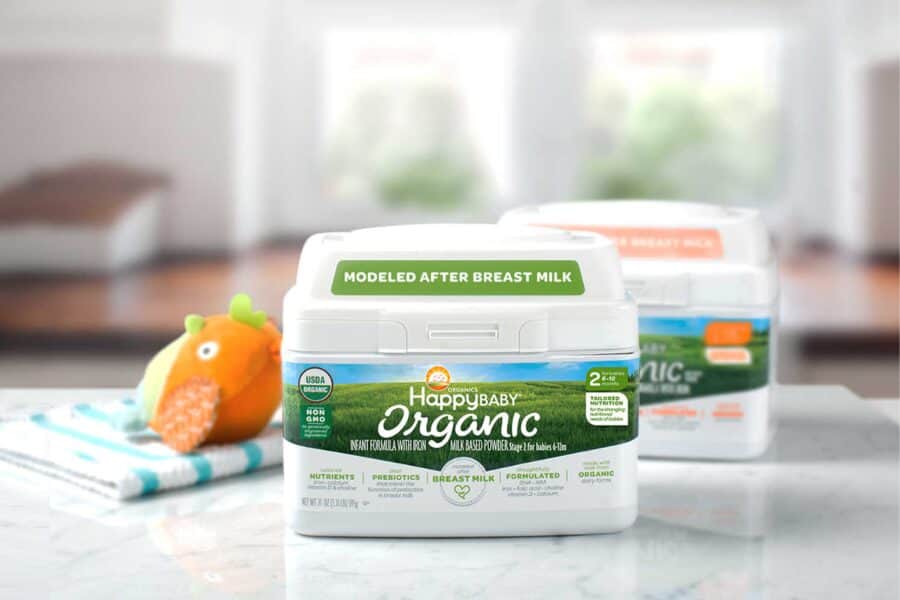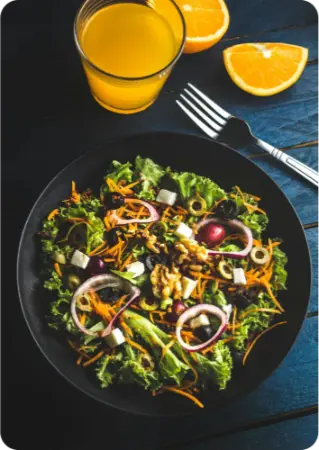Gut health doesn’t pop up in conversations every other day. When in reality, the gut controls nearly all bodily functions. Underrated and unsexy ti talk about, your gut health matters more than you have ever as you age.
How do you keep your gut healthy? By include probiotics in your diets. Probiotics are beneficial microorganisms that help improve gut health and boost the immune system. Probiotics are your gut’s best friend, and you don’t need to rely on dairy to get your fix.
Whether you’re new to veganism or a seasoned plant-based eater, incorporating probiotic-rich foods into your diet can revolutionize your digestive health.
From tangy fermented veggies to creamy dairy-free yogurts, we’ve curated a list of 15 potent vegan probiotic foods that will get your gut in order and keep you feeling vibrant and energized. Let’s dive in!
15 Powerful Vegan Probiotic Foods

Sauerkraut is a fermented cabbage dish that is rich in probiotics. The fermentation process of sauerkraut produces lactic acid bacteria, which are beneficial for gut health. Sauerkraut is also a good source of vitamin C and vitamin K.

Kimchi is a Korean dish made of fermented vegetables, such as cabbage, radish, and cucumber. It is rich in probiotics, including Lactobacillus and Bifidobacterium. Kimchi is also a good source of vitamin C, vitamin K, and fiber.

Kombucha is a fermented tea that contains live cultures of bacteria and yeast. It is rich in probiotics, antioxidants, and organic acids, which help improve gut health, boost the immune system, and promote weight loss.

Tempeh, one of the most sought-after vegan probiotic foods, is a fermented soybean product that is rich in probiotics, including Bifidobacterium and Lactobacillus. It is also a good source of protein, fiber, and iron.

Miso is another popular item among vegan probiotic foods and is a Japanese fermented soybean paste that is rich in probiotics and antioxidants. It is also a good source of protein, fiber, and vitamins B and K.

Natto is a traditional Japanese food made of fermented soybeans. It is rich in probiotics, including Bacillus subtilis, which helps improve gut health and boost the immune system. Natto is also a good source of protein, fiber, and vitamins K and C.

Yogurt is a fermented dairy product that is rich in probiotics, including Lactobacillus and Bifidobacterium. It is also a good source of protein, calcium, and vitamins B2 and B12. For vegans, there are non-dairy options available, such as coconut or soy yogurt.
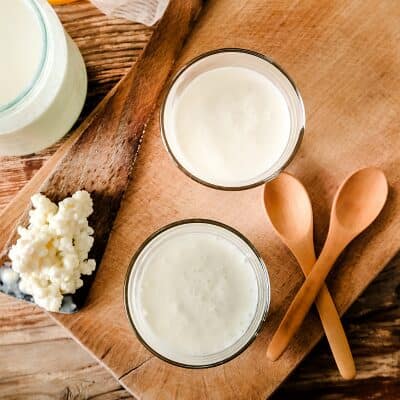
Coconut kefir is a fermented coconut milk that is rich in probiotics, including Lactobacillus and Bifidobacterium. It is also a good source of medium-chain triglycerides (MCTs), which help improve digestion and boost energy levels.
Also Read: Dairy-Free Protein Powders

Pickles are among the easiest accessible vegan probiotic foods, made with cucumbers that have been fermented in vinegar and spices. They are rich in probiotics and antioxidants, which help improve gut health and boost the immune system.

Sourdough bread is made by fermenting dough with wild yeast and lactobacilli. It is rich in probiotics and prebiotics, which help improve gut health and aid in digestion. Sourdough bread is also easier to digest than regular bread and may help lower the risk of gluten intolerance.

Apple cider vinegar is made by fermenting apple cider with bacteria and yeast. It is rich in probiotics, acetic acid, and antioxidants, which help improve gut health, regulate blood sugar levels, and promote weight loss.
Also Read: Best Zero-Calorie Snacks

Kefir is a fermented milk drink that is rich in probiotics, including Lactobacillus and Bifidobacterium. It is also a good source of calcium, protein, and vitamins B2 and B12. For vegans, there are non-dairy options available, such as coconut or soy kefir.

Fermented vegetables, such as pickled carrots, beets, and radishes, are rich in probiotics and antioxidants. They also help improve gut health, aid in digestion, and boost the immune system.

Non-dairy cheese, made from nuts or soy, is a great source of probiotics. The fermentation process used to make these cheeses creates live cultures of bacteria, which help improve gut health and boost the immune system. They are also a great source of protein, fiber, and vitamins.

Kvass is a traditional Russian fermented beverage made from rye bread. It is rich in probiotics, antioxidants, and vitamins B and C. Kvass helps improve gut health, boost the immune system, and promote healthy digestion.
Benefits of Consuming Vegan Probiotic Foods

The benefits of consuming probiotic-rich foods are numerous. Probiotics are essential for maintaining a healthy gut microbiome, which plays a crucial role in overall health. Some of the benefits of consuming vegan probiotic foods include:
- Improved Digestion: Probiotics help break down food in the gut, making it easier to digest and absorb nutrients.
- Boosted Immune System: Probiotics help boost the immune system by fighting off harmful bacteria and viruses.
- Lowered Inflammation: Probiotics help reduce inflammation in the gut and throughout the body, which can lead to a wide range of health benefits.
- Improved Mental Health: There is growing evidence that a healthy gut microbiome can improve mental health by reducing symptoms of depression and anxiety.
- Weight Loss: Probiotics may help with weight loss by improving digestion and regulating appetite.
- Lowered Risk of Chronic Diseases: Probiotics may help lower the risk of chronic diseases such as heart disease, diabetes, and certain types of cancer.
Also Read: Does Sugar Expire and What to Do with Expired Sugar?
Probiotics Vs. Prebiotics: Which Is Better?
Vegan probiotic foods and prebiotic foods both play important roles in maintaining a healthy gut microbiome, but they have different mechanisms of action and cannot necessarily be compared in terms of which one is better.
Vegan probiotic foods contain live microorganisms that can help increase the number of beneficial bacteria in the gut. These foods include fermented foods like yogurt, kefir, sauerkraut, kimchi, and kombucha. Probiotic supplements are also available in capsule or powder form.
On the other hand, prebiotic foods contain indigestible fibers that feed the beneficial bacteria in the gut, promoting their growth and activity. These foods include fruits, vegetables, whole grains, legumes, and nuts.

Both probiotics and prebiotics are important for maintaining a healthy gut microbiome, and consuming both can have synergistic effects. For example, consuming prebiotic foods can help increase the effectiveness of probiotics by providing the beneficial bacteria with the necessary nutrients to thrive.
However, it’s important to note that the effectiveness of probiotics can vary based on the strain of bacteria and the dose consumed, and not all strains of bacteria found in probiotics have been shown to be beneficial for everyone. Additionally, some people may experience digestive discomfort when consuming large amounts of vegan probiotic foods or supplements.
Are These Foods Sufficient for My Entire Probiotic Intake?
While the 15 vegan probiotic foods listed in this article can be a great source of probiotics, they may not be sufficient for your entire probiotic intake. The amount of probiotics that you need may vary based on your individual health status, age, diet, and other factors.
It’s important to note that the specific strains of probiotics found in these foods may vary, and not all strains may be beneficial for everyone. Additionally, the amount of probiotics in these foods can vary based on factors such as how the food was prepared and stored.

In general, it’s recommended to consume a variety of vegan probiotic foods and supplements to ensure that you’re getting a range of beneficial strains of bacteria. Additionally, you may want to consider taking a probiotic supplement to boost your intake of probiotics, particularly if you have specific health concerns related to gut health.
It’s important to speak with a healthcare professional before starting any new supplement or making significant changes to your diet to ensure that you’re meeting your individual nutrient needs and addressing any specific health concerns.
Will Having Vegan Probiotic Foods be Sufficient for a Healthy Diet?
While consuming vegan probiotic foods can be beneficial for gut health, they are just one component of a healthy diet. It’s important to consume a variety of nutrient-dense whole foods, including fruits, vegetables, whole grains, lean proteins, and healthy fats, to ensure that you’re getting all of the necessary nutrients to support overall health.
In addition, consuming a balanced diet that meets your individual nutrient needs can help reduce the risk of chronic diseases, promote healthy weight management, and improve energy levels and overall wellbeing.

It’s also important to note that while probiotic foods can be beneficial, they are not a cure-all and should not be relied on as the sole means of promoting gut health. Other lifestyle factors, such as getting regular physical activity, managing stress, and getting adequate sleep, also play important roles in promoting overall health and maintaining a healthy gut microbiome.
The Ecowiser Take on Vegan Probiotic Foods
In conclusion, vegan probiotic foods offer numerous health benefits and are essential for maintaining a healthy gut microbiome. Incorporating these foods into your diet can help improve digestion, boost the immune system, and reduce the risk of chronic diseases. With the variety of options available, it’s easy to find probiotic-rich foods that fit your dietary preferences and tastes. So, whether you prefer sauerkraut or coconut kefir, make sure to include these foods in your diet for optimal health.
Speaking of optimal health, superfoods should be a part of your diet too! Check out our blog for some of the best vegan Omega-3-rich superfoods you should eat ASAP!
Frequently Asked Questions
Probiotics are beneficial bacteria that help maintain the natural balance of microorganisms in your gut. They play a crucial role in digestion, nutrient absorption, and supporting a healthy immune system.
Can you get enough probiotics from a vegan diet?
Absolutely! There are numerous plant-based sources of probiotics, including fermented vegetables, dairy-free yogurts, and kombucha. Our list of 15 powerful vegan probiotic foods provides excellent options to incorporate into your diet.
What are some common vegan probiotic foods?
Some popular vegan probiotic foods include sauerkraut, kimchi, miso, tempeh, pickles, dairy-free yogurt, and kombucha. These foods are rich in beneficial bacteria that support gut health.
Can I give vegan probiotic foods to kids?
Yes, children can benefit from probiotic foods just like adults. However, it’s essential to introduce these foods gradually and monitor for any adverse reactions. Always consult with a pediatrician if you have any concerns.


